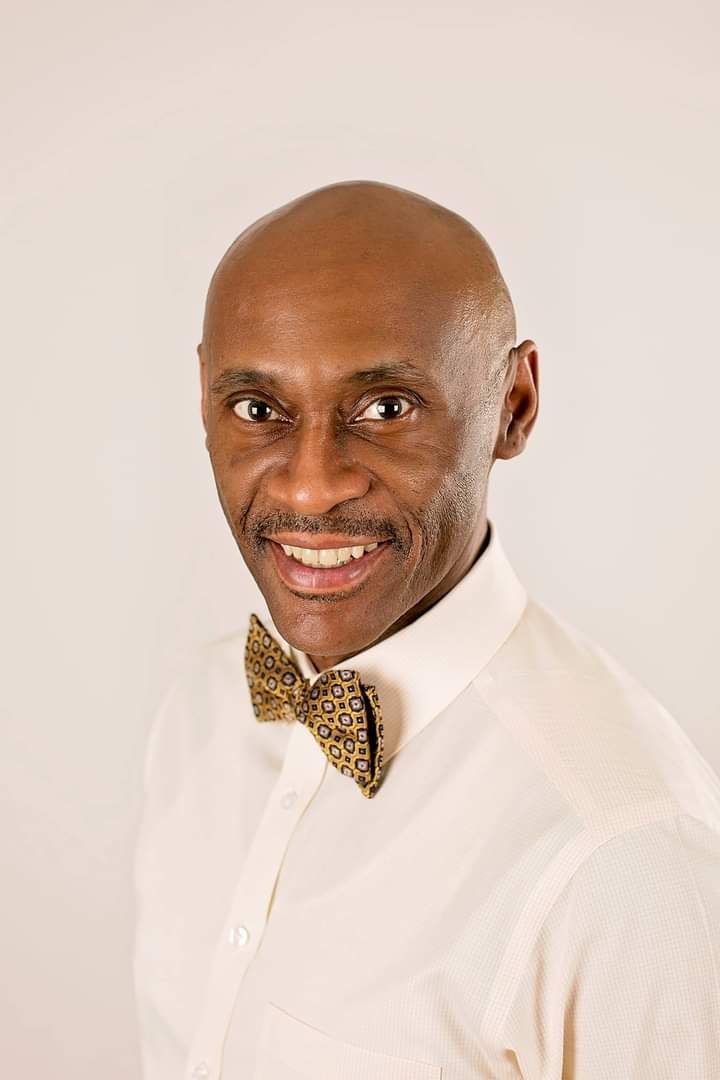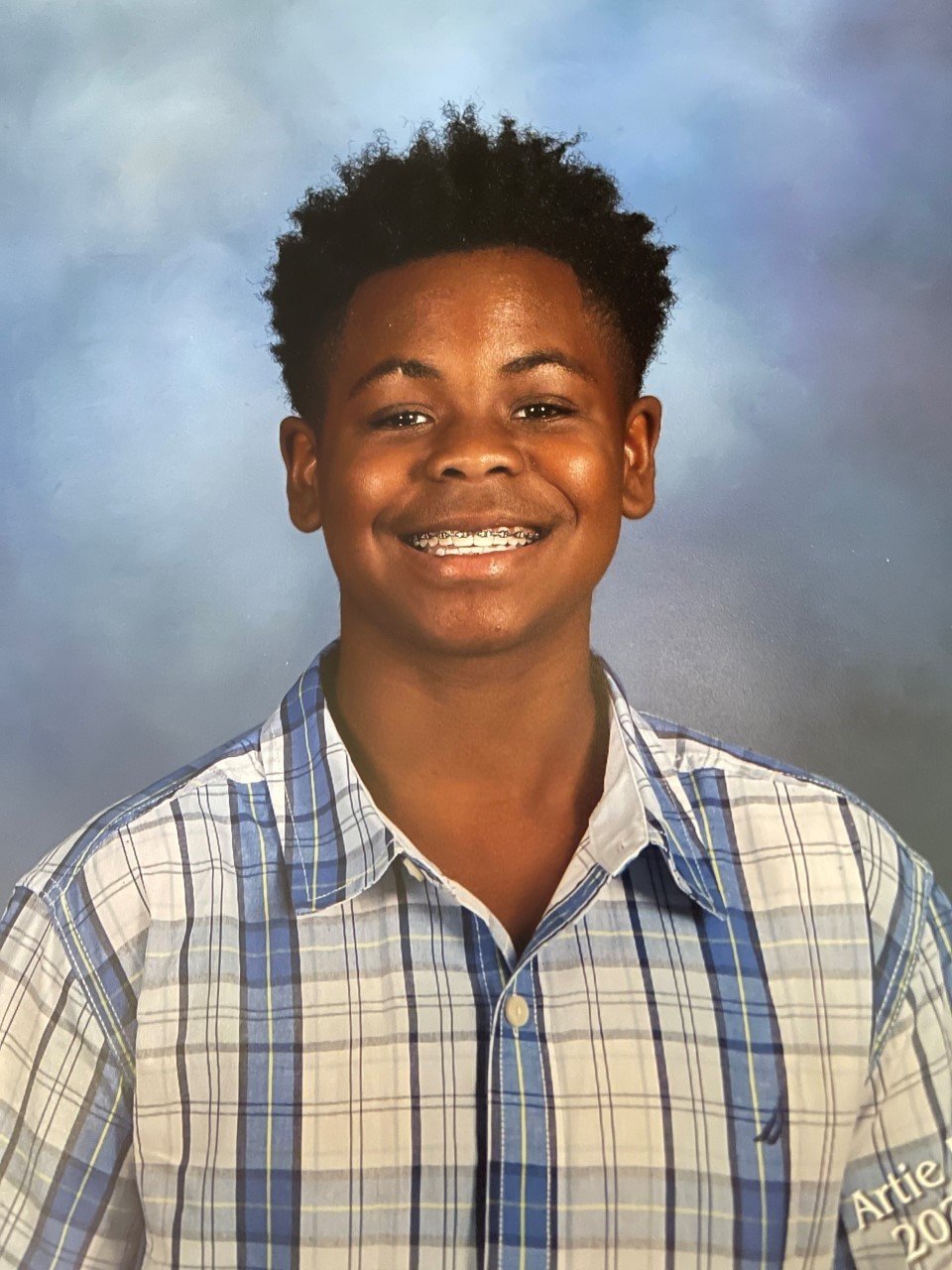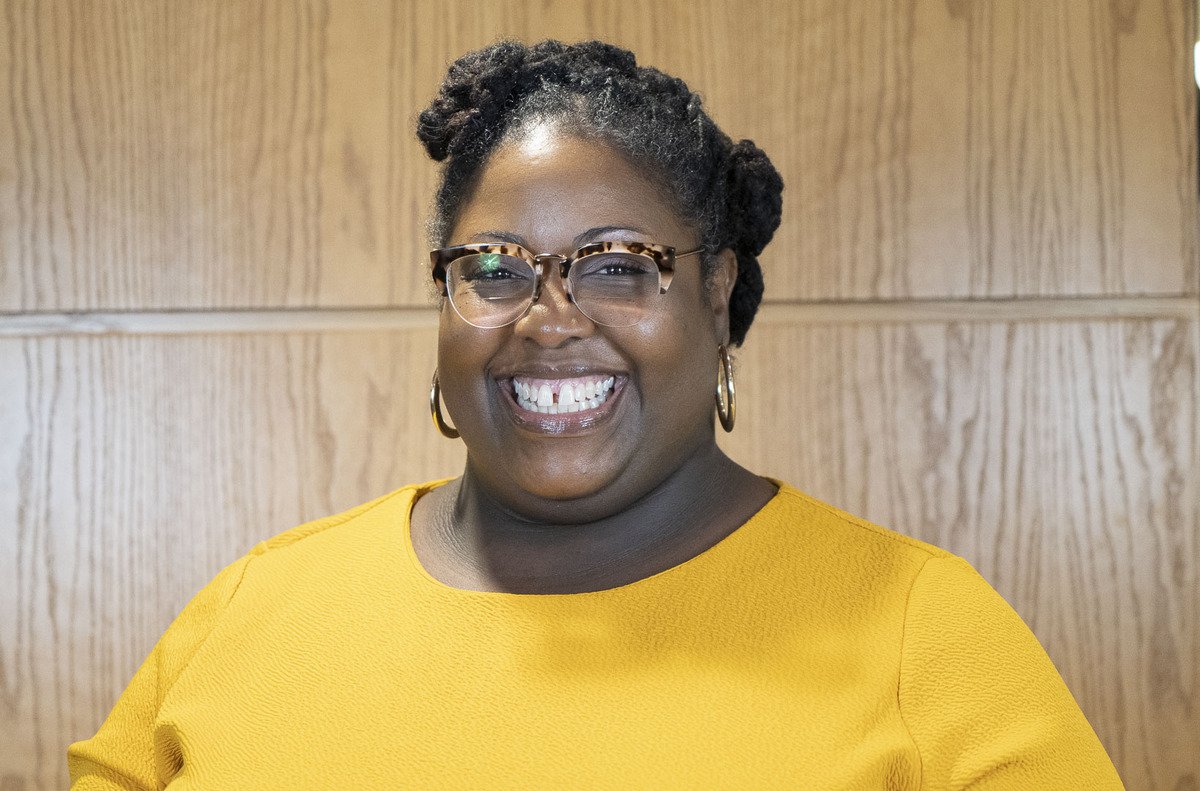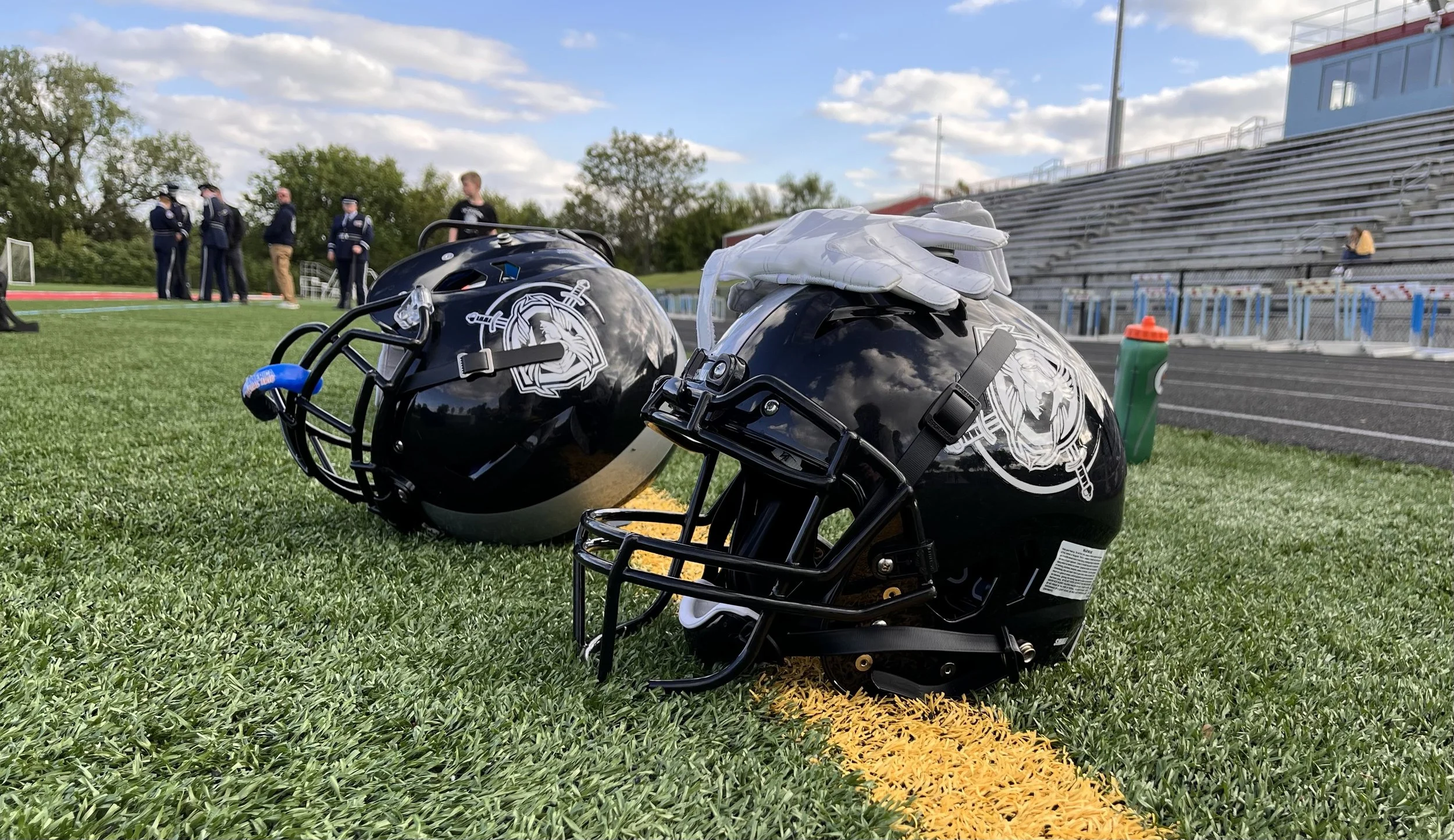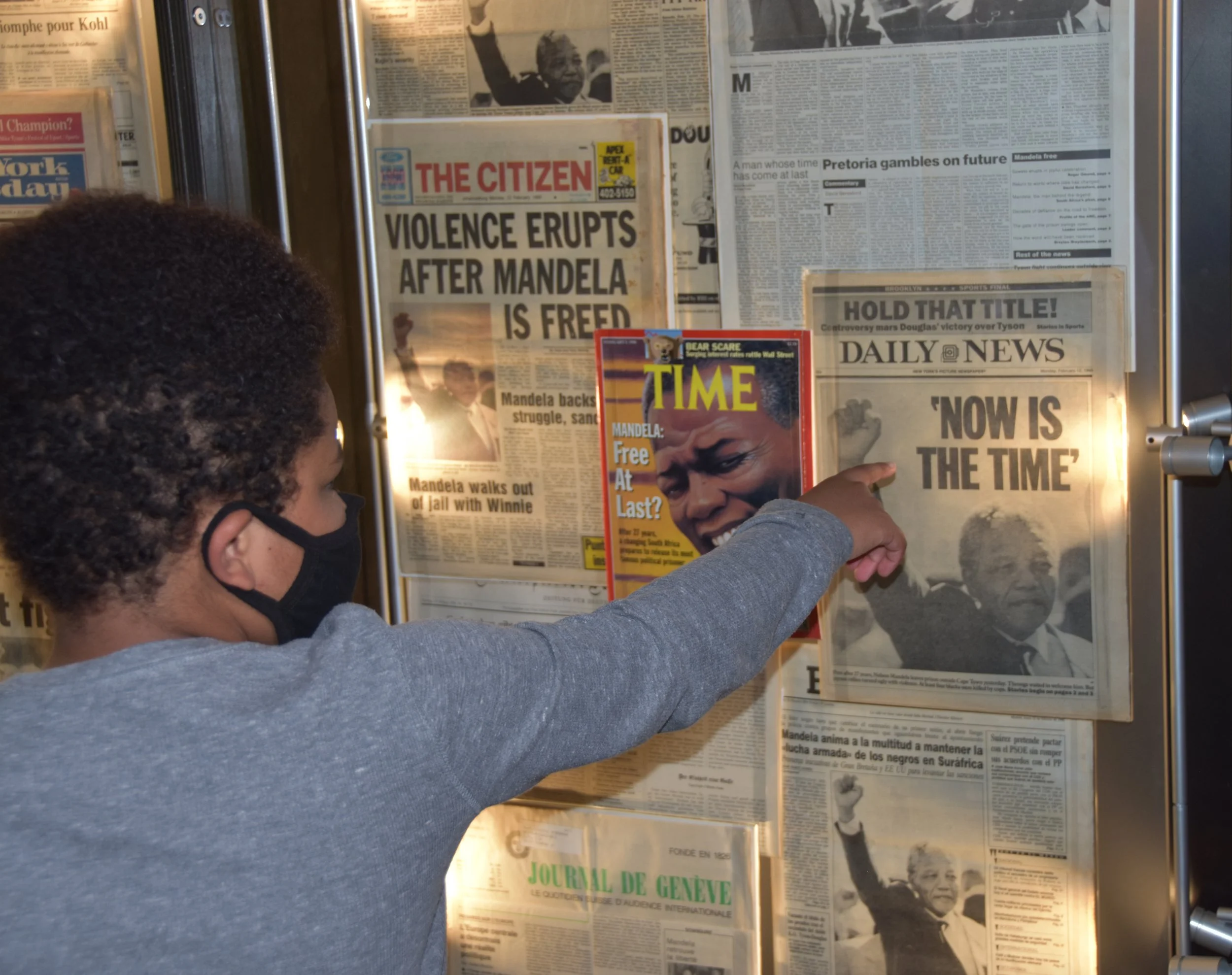“Omaha’s Forgotten Century” at the Orpheum Theater Takes Multicultural Look Back at Omaha
By: Leo Adam Biga
New York City-based dancer-choreographer Ray Mercer has helped fashion “a love letter” to his hometown of Omaha in a new dance-theater piece playing one night only at the Orpheum Theater. “Omaha’s Forgotten Century” goes up June 25 at 7:30 p.m. It’s free and open to the public.
Andy Cassano. Photo Credit: Omaha Performing Arts
The Omaha Performing Arts (OPA) original production closes the 2021-2022 Voices Amplified season. Consistent with the series’ focus on Black and brown voices, “Omaha’s Forgotten Century” centers the stories of African American and Latino voices in this grand finale. The show is inspired by the local heritage and history of these cultures and imagines their intersection in a multicultural family.
OPA vice president of programming and education, Andy Cassano, envisioned something like this after last year’s Amplified Voices season-ending show. It presented short works by local artists responding to the Langston Hughes poem, “Let America Be America Again.” For this year’s finale, Cassano said, “rather than commission a whole lot of little pieces, I wanted to commission a single piece that brought the community together to create the story and then have it realized in one big production.”
“We wanted to raise the bar in terms of what we’re doing and who we’re bringing together.”
Mercer Leads Creative Team
OPA has devoted major resources to assemble the “Omaha’s Forgotten Century'' creative team. Mercer, who’s been an OPA artist in residence, enthusiastically jumped on board as creative director and choreographer.
“I’m so proud of where I was born and raised that I wanted to bring myself back to Omaha and just share my art with the community that I hold so dear. It’s a place that I love so much.”
His own childhood memories and those of other contributors are reflected in the piece.
Ray Mercer. Photo Credit: Omaha Performing Arts
“It’s my story. It’s my family’s story. It’s our collective story. There’s a rich culture there I want to celebrate,” Mercer said.
From an early age Mercer dreamed of big, far-off horizons. Heeding his wanderlust, he left Omaha after graduating high school in the early 1990s to pursue a career in dance. After a decade, he established himself as an in-demand performer and choreographer. He’s been with “The Lion King” company for 19 years. He develops dance works and teaches master classes for ballet companies, theaters, universities and other organizations.
Kathy Tyree. Photo courtesy of Kathy Tyree Productions
He grew up in a still red-lined, segregated Omaha. “It seemed so separated—the north side (Black), south side (Latino), west side (white). I want to take this opportunity to combine the cultures and acknowledge them and their history.” He hopes the audience recognizes that despite differences of geography and culture, “We’re neighbors, we’re connected—that’s important to me.”
The rest of the creative team quickly fell in place. Mercer requested Kathy Tyree to direct. He choreographed her Omaha Community Playhouse production of “Ain’t Misbehavin.” Playwright and University of Nebraska at Omaha Department of Black Studies associate professor Peggy Jones was asked to write the script. Omaha muralist Hugo Zamorano signed on to design the set.
To help contextualize the social-cultural-political-historical dynamics of the Black-Latino experience, Omaha historians Jade Rogers and Jose and Linda Garcia were consulted.
OPA community engagement specialist Aaron Gregory, a dancer and choreographer himself, served as a creative consultant as well.
Generations
The show’s simple narrative revolves around the close bond between a grandfather and grandson, Apa and Ernie, portrayed by Omaha actors D. Kevin Williams and Artie Shaw, respectively.
“They are best buddies,” Tyree said of the characters. “The grandpa’s telling these beautiful stories to his grandson. He’s told him a hundred times but the grandson just loves hearing them.”
The oral tradition is often how the history of a family, a community, a race gets handed down. When Apa worries his stories are too sad, Ernie points out, “If we don’t know these things, it’s like they never even happened.” Aspects of Ernie are based on Mercer. “As a young boy I had a vivid, endless imagination. I wanted to insert that sense of imagination, desire and curiosity for things bigger in Ernie, because that was me as a child,” Mercer said.
The piece portrays various eras in Omaha history, referencing touchstones from different decades. Mercer set original dances to specific music to express in movement and sound the tenor of those times. He’s bringing eight dancers from NYC, where rehearsals for his numbers were held.
The show opens and closes with a dance set to one of his favorite songs, “The Joint is Jumpin’,” from one of his favorite musicals, “Ain’t Misbehavin’” by Fats Waller.
“It’s fun, it’s celebratory,” Mercer said of the music.
Dancers Terri Wright, Tatiana Nunez, Shay Bland, Olivier Medus, Clarricia Golden. Photo credit: Omaha Performing Arts.
The impressionistic set consists of a family residence, a neighborhood street corner, a juke joint and the Omaha cityscape. The production references everything from social upheavals to fashion and music trends to mark the years. Mercer’s dances interpret it all, even the hope of Barack Obama’s first inauguration giving way to division followed by pandemic fears and disruptions to pleas for unity and healing. “Storytelling is so important to me in my dance,” he said. “By the same token, I love to keep things just free enough where you take what you need from it.”
A spoken word dance number with four women is inspired by Amanda Gorman’s stirring 2021 inauguration poem, “The Hill We Climb.” Another dance is a duet inspired by the tradition of the ofrenda or home altar to honor the departed during the Mexican Día de Muertos,
A sense of nostalgia for things past and of appreciation for things that endure runs deep.
“The hope here is that in a very culturally affirming way there can be this looking into and, at the very least, sharing stories about what it was like for those who came before, what their lives were and where we come from,” Jones said.
Even though the family Jones created for the piece is an amalgam of families and the product of her own imagination, Jones said, “It’s an authentic narrative based on the history that occurred.”
Not all history-worthy stories are documented or taught and “so we’re using this production to bring those to life,” Gregory said. “This history is very alive in its smaller communities, but we’re providing a stage and a spotlight.”
“This history is very alive in its smaller communities, but we’re providing a stage and a spotlight.”
The project appealed to the educator and storyteller in Jones. “One of my professional goals is to elucidate things and this project fits in the genre I’ve done plays in, where it’s about telling stories that may not be known. This is the first one situated in Omaha. I think it’s a great chance to share history that folks may not be aware of and to do it in a very entertaining and connecting way that hopefully speaks to our human experience.”
The piece’s title, she said, asks viewers to consider, “Were things forgotten or were they ever known in the first place?”
Actors D. Kevin Williams and Artie Shaw. Dancers Alrick Thomas, Andrew Bryant. Creative team Jade Rogers. Photo credit: Omaha Performing Arts.
Voices, Conversations and Memories
The team expects the show to stimulate conversations. Mercer hopes it evokes memories for viewers who find their own experiences represented on stage. “I want those small moments to happen within this piece,” he said.
“My hope is it’s an interaction with the community,” Jones said, “so that once seen people come forward with their stories or narratives. Maybe this will even cause some exploration for people looking into their family histories.”
Jones appreciates OPA lifting up underrepresented voices and narratives. “I think Voices Amplified is a really good step towards us knowing more and more about our city and all the parts of our city.”
“Omaha Performing Arts does a beautiful job of getting into the community and doing that reach and connecting,” Tyree said.
As much as the piece is a nod to the past, it’s also an acknowledgment of how history shaped who we are today. It ends on an upbeat, hopeful, expectant note.
Looking ahead, OPA’s Andy Cassano said, “There will be cause and occasion for us to produce works like this as the opportunities arise, specifically around bringing pockets of the Omaha community together to help write their stories.”
For Mercer, “Omaha’s Forgotten Century'' is a poignant way to connect what he does as an artist with his own personal experience of Omaha.
“We’ve been working on it for a very long time,” he said, “but I had many projects to finish before I could really home in on this one. When I finally got down to working on this, I felt tears coming down. I was like, oh, my God. I didn’t realize how personal this is until I started to invest in what this really is to me. It’s a passion project.”











